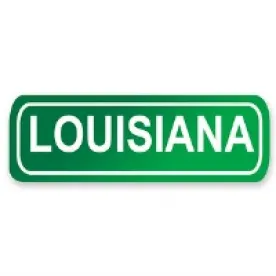As members of the Jones Walker SALT Team sat around the table in our office kitchen staring into a box of donuts provided by our firm on National Donut Day (the day after the close of the 2019 Regular Session of the Louisiana Legislature), we pondered this question: what does that box of tasty treats have in common with H.B. 547, which is Louisiana’s latest legislative expression on the subject of sales tax collection and remittance obligations for remote sellers? Two similarities quickly came to mind as we licked the glaze off our fingers.
First, the box of donuts definitely was full of some tasty treats (a dozen to be exact), and, well, H.B. 547 has some tasty ingredients, but certainly not a dozen. Second, H.B. 547, like that box of donuts, is full of holes.
H.B. 547, which is awaiting action by Governor Edwards, is Louisiana’s second legislative effort to bring Louisiana’s exceedingly complex state and local sales tax system into the post-Wayfair world envisioned by the United States Supreme Court in South Dakota v. Wayfair, Inc., 138 S.Ct. 2080, 201 L.Ed.2d 403 (2018), a world that many states have already entered in full force. Louisiana’s first effort, Act No. 5 of the 2018 2nd Extraordinary Session (“Act 5”), made some strides by establishing minimum economic nexus thresholds for state-level sales tax collection purposes (Act 5 is silent as to any local-level economic nexus standards) and attempting to establish the Louisiana Sales and Use Tax Commission for Remote Sellers (the “Commission”) as the single entity in Louisiana for the collection of state and local sales taxes on remote sales.
Unfortunately, as enacted, the provisions of Act 5 never became effective due to a drafting hole. Act 5’s provisions were not to become effective until a final ruling by the United States Supreme Court in Wayfair finding South Dakota’s remote seller law to be constitutional. In Wayfair, the Supreme Court overruled the physical presence requirement, but it did not reach a ruling on the constitutionality of South Dakota’s remote seller law. Thus, the provisions of Act 5 never got rolling like the donut that rolled across the table.
H.B. 547 essentially began its legislative path as a bill to fix the effective date provision of Act 5 and to address some of the issues the Commission had discussed and developed over the past few months. As is the case with many bills, H.B. 547 changed as it worked its way through the legislature. For example, at one point, provisions were added to specifically address a form of “centralized reporting” for online marketplace sales. There also were discussions among various stakeholders regarding issues, such as how to fund the work of the Commission, how to make sure local tax collectors received the proper amounts of sales taxes on remote sales, and how to make sure the local tax collectors retained their constitutional power and authority to operate independently from the state sales tax system.
Most importantly, stakeholders discussed a strategy for broadly defining “remote sales” and “remote sellers” to allow more businesses to take advantage of some form of centralized collection and remittance for remote sales. Most stakeholders agreed that this strategy would bring Louisiana more in line with the Wayfair standards, would avoid protracted and costly litigation over the constitutionality of Louisiana’s dizzyingly complex state and local sales tax systems, and would bring in much-needed state and local sales tax revenues on an efficient basis that is user-friendly for the tax collectors and their “deputy tax collectors” (i.e., remoted sellers).
Now that H.B. 547 is baked (half-baked?), what tasty treats does it contain? First, H.B. 547 fixes the effective date snafu in Act 5 by providing that H.B. 547 and Act 5 are effective for tax periods beginning July 1, 2019. This essentially means that the legislature has finally breathed life into the Commission, which will soon be fully effective and able to carry out its mission. Second, the Commission now has authority to be the single collector of state and local sales taxes for “remote sellers,” as narrowly defined in H.B. 547. Third, until the Commission fully establishes the central collection system for “remote sellers,” H.B. 547 allows “remote sellers” to temporarily use the state direct marketers return (the “DMR”) as provided in La. R.S. 47:302(K), which provides for a flat 8.45% rate to cover both state and local sales taxes.
Now, to the holes.

Much like the boxes of donuts pictured, H.B. 547 is full of holes. For example, H.B. 547 fails to address online marketplace sales. Marketplace facilitators provide an online marketplace for the sale of items by third parties. Louisiana sales tax laws presently are unclear, at best, regarding sales tax collection and remittance responsibilities for online marketplace sales, making Louisiana’s already mind-numbingly complex state and local sales tax systems even more complex. A Louisiana court of appeals recently “addressed” marketplace facilitators in Normand v. Wal-Mart.com USA, LLC, 18-211 (La. App. 5 Cir. 12/27/18); 263 So. 3d 974. This case is on appeal to the Louisiana Supreme Court and likely will be decided later in 2019. A complete discussion of the Wal-Mart.com case is beyond the scope of this article. Suffice it to say that the Louisiana Legislature missed a timely opportunity to thoughtfully and deliberatively address online marketplace sales though the legislative process on a prospective basis via H.B. 547. Language found its way into the bill but was unceremoniously stripped out in the legislative process.
Perhaps the largest hole in H.B. 547 is another opportunity missed by the legislature. H.B. 547 provides more specific definitions of “remote sales” and “remote sellers.” But the new definitions are so narrow that very few “online businesses” will qualify for the new remote sellers’ central collection process administered by the Commission. The problem arises because of the reference in the definition of “remote seller” to the definition of “dealer” in La. R.S. 47:301(4)(a) through (l). Reading these provisions together, the scope of “remote seller” that can benefit from the central collection system is very small. Indeed, sellers that engage in the regular solicitation of a consumer market in Louisiana through any type of advertising or media can potentially be required to collect state and local sales taxes in Louisiana, but will not qualify as “remote sellers” that are allowed to use the Commission’s central filing system. Consequently, even sellers lacking any physical presence in Louisiana could be required to file sales tax returns with the state and every independent, local taxing jurisdiction in Louisiana. This begs the question: Has Louisiana made any meaningful headway in the post-Wayfair world?

The picture provides a great illustration of one of the shortcomings of H.B. 547. In order to bring Louisiana’s complex state and local sales tax systems more in line with the Wayfair criteria, avoid unnecessary litigation and related costs over the constitutionality of Louisiana’s system, ease the undue burden on the “deputy tax collectors” of the state and local tax administrators, and more quickly start the flow of much-needed revenues to the state and local tax recipient bodies at little or no additional costs, the Louisiana Legislature missed the opportunity to draft legislation that would have a scope as broad as the outer diameter of the donut in the picture above. Instead, the Louisiana Legislature focused on the diameter of the hole in the middle of the donut (or even smaller) when defining “remote sale” and “remote seller.”
Unless things change over the next year through the work of the Commission and further efforts by the Louisiana Legislature to broaden the scope of central collection of state and local sales taxes, and to address online marketplace transactions, all on a specific, non-speculative, and prospective basis, few “remote sellers” will be able to use the Commission’s central collection system. Confusion and undue burden will continue for both businesses and tax administrators. Needed revenues will not flow to the local tax recipient bodies. And litigation over the constitutionality of the discriminatory, complex state and local sales tax systems will undoubtedly follow, with the related time and costs. In other words, if Louisiana aims low and seeks to perpetuate the undeniable complexity and undue burden on interstate commerce caused by the current systems in Louisiana and force the systems into the hole of the donuts, the state, local governmental tax recipient bodies, and businesses will suffer. Louisiana will continue to be at the bottom.
With meaningful collaboration among all stakeholders, however, the Commission and the Louisiana Legislature can aim high, make Louisiana’s system as close as possible to a non-discriminatory, constitutional sales tax system envisioned by the U.S. Supreme Court in Wayfair, and move Louisiana out of the cellar when it comes to complex state and local sales tax systems. Aim for the outer diameter of the donut hole, not the inside. Everyone will enjoy the tasty treats of such a system.




 />i
/>i
